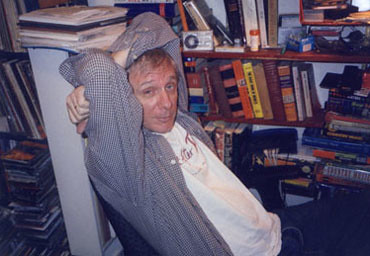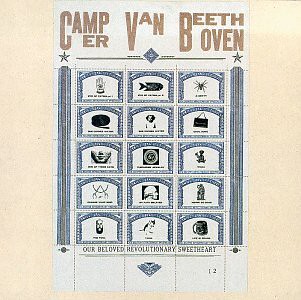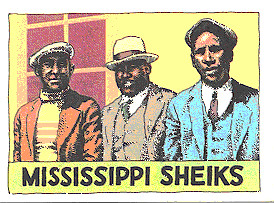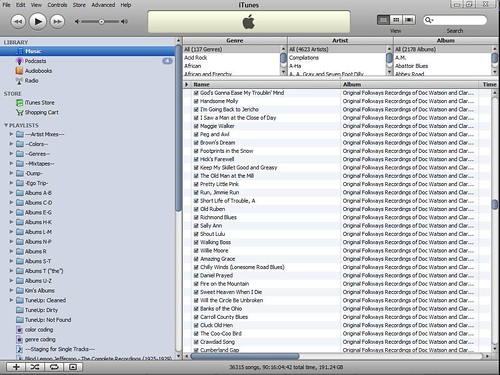I've spent the last two weeks acclimating to my new place, new city, new time zone. This trip moved me a thousand miles. I left with a backpack and two bags: everything else was given away, sold, or stored.
This includes my music. The vinyl, the CDs, even that one cassette I own (Robert Johnson's Complete Recordings)...most are in a storage unit in the middle of the midwest. The rest, hopefully, are being given a good (temporary) home with a friend. I have 12 albums with me, 5 I brought, 7 I bought once I arrived here.
This is just physical media. I did rip most of the music to an external hard drive before I left, so I'm not in danger of running out of exciting music or having a listening itch that I can't scratch. (If I really find myself begging to hear, say, Billy Joel's Millennium Concert or the second Finger Eleven album, then I have bigger issues.)
Is this not a glorious time we are living in? I have over 40,000 tracks two clicks away and they physically take up as much space as my left hand. Thirty years ago I'd have crates of AC/DC, Sabbath, Springsteen, Cheap Trick, and the Damned to lug around, plus a turntable ('cause why would I buy a new one when I'd have a perfectly great one already?).
Eight years ago, when I moved 1500 miles for college, I had 224 CDs. I bought a case that allowed me to take the entire lot but not the jewel cases or booklets. I felt it was a bit of a loss not having the package, but the music is what's important, right? The subsequent 11 moves in 4 years between dorm rooms convinced me that the lack of extra bulk was virtuous.
But still, when I got my own place and it seemed I was relatively settled, I once again brought out all those empty cases and added them to those I'd picked up in the intervening time. And when I finally got the whole thing set up, I was happy and impressed. Here's the picture, initially from a previous post:
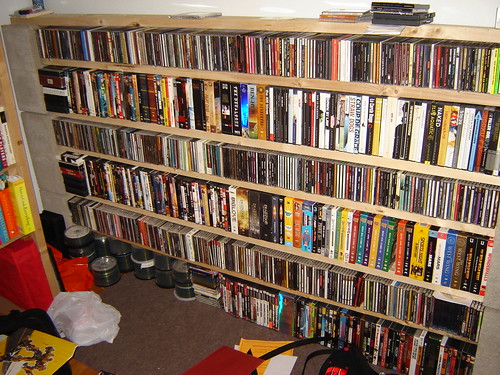
Yeah, I'm a little sad that all I have now are 1s and 0s and code to show me what I got. I like having the booklet, I like having the case, I like seeing the CD sitting on the shelf. I like being persuaded to listen to an album because exposed end is garish yellow. I like the artwork. I like to read the essays included with compilations of old blues. This is all lost with a switch to a solely or mostly digital interface.
But...I have 1800 albums I can listen to right now that I couldn't otherwise.
I wonder: it'll be at least three months, but more like six or nine, before I get the physical copies back. In that time, will I feel the same way? Could I bring myself to sell all those discs at the local used store? Will I stay completely digital?
Well, no. Because, for me, it's not just about the music. I'm a collector. I like the aesthetic, the way rows of music look on the shelf. I like re-arranging my albums by things like spine color or how they fit into my personal narrative. And that's something you can't do with a digital copy. Not easily, anyway.
But I imagine 95% of what I'll play will be the digital versions.
Robert Johnson - Ramblin' On My Mind (take 1) [sounds almost as good on the cassette]
Cheap Trick - Stiff Competition [a very specific time in my personal narrative]
Gogol Bordello - Oh No [from that garish yellow album]
(Having difficulty uploading the files...will try again in the morning. Sorry.)
Posted by Lin.

